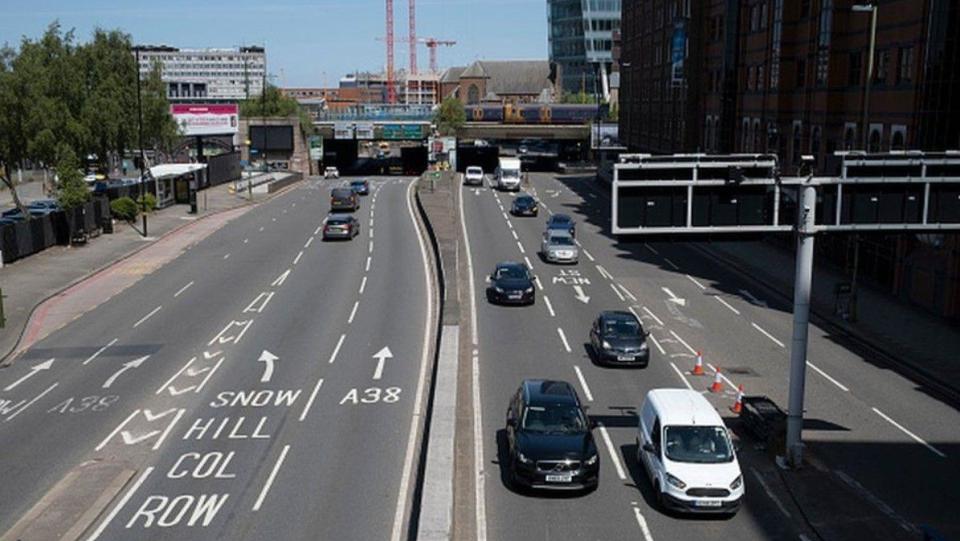'I want to pay CAZ fine but council won't let me'
- Oops!Something went wrong.Please try again later.
A couple say they have spent a year and a half trying to pay without success a Clean Air Zone (CAZ) fine, leaving them in fear of a visit from bailiffs despite their best efforts to comply.
In March 2022, Diane Darbey hired a transit van and triggered a charge by driving the non-compliant vehicle within the confines of the CAZ in Birmingham.
But she said she had no idea of the transgression until she received a letter months later informing her there was no further chance to settle a fine resulting from non-payment of the charge.
Since then, she and husband Nick, from Wolverhampton, said they had made numerous unsuccessful attempts to pay the penalty.
Birmingham City Council, the CAZ operator, said it followed "the statutory enforcement process for the issuing and enforcement of penalty charge notices (PCN)".
Under the system, it is the responsibility of those driving non-compliant vehicles to pay the charge within a six-day window in advance of the journey, or six days thereafter. The sum depends on the type of vehicle entering the zone.
Failure to pay leads to a fine of £120, reduced to £60 if paid within 14 days. But if the fine is not addressed within a total of 28 days, proceedings may begin.
But Mr Darbey stated seven months elapsed between entering the CAZ and the arrival of their first alert which "basically said 'sorry, you're out of time, there's nothing you can do about this, this matter will go further'."
He responded with a letter and "months later again, the only response we had was a court letter" asking for the completion of "an out-of-time witness statement", with which Mr Darbey said he complied.
But further frustration followed.

Mr Darbey said they heard nothing for weeks before the application "came back with a rejection form" and "it went to the traffic enforcement centre", which, he added, informed him he must wait for a reply. "Again this took months," he told the BBC.
Then, a letter in March this year "basically said 'it's gone to court for a decision without a hearing and this [application] has been refused'. And the reason why it has been refused? 'You're out of time'.
"But when you haven't had a response for months in the first place, you're obviously going to be out of time."
The council said: "Penalty charge notices are based on a number plate read, and are sent to the address of the registered keeper of a vehicle, based on the information held by the DVLA at the point it is issued."
Under such measures, the initial correspondence in the Darbeys' case would go to the hire company. Parties in circumstances where they were not the actual driver may then inform local authorities of that fact, adding the relevant details of who was behind the wheel.
According to Mr Darbey, an individual at the company informed him the process was addressed immediately, leaving the Darbeys unsure why they had no opportunity to resolve matters prior to the first "no further chance" correspondence.
The council added: "In the event that a PCN is received, opportunities for challenge are set out at each stage of the process so that anyone issued with a PCN understands how they can pay or challenge it."
Follow BBC West Midlands on Facebook, X, and Instagram, Send your story ideas to: newsonline.westmidlands@bbc.co.uk

